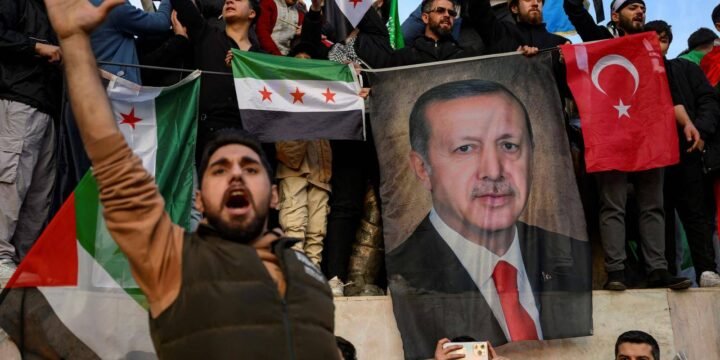The Impact of Syrian Collapse on Israeli-Turkish Relations
The rapid collapse of the Syrian regime, which has led to an increase in Turkish influence, has imposed a new type of challenge on Israel, different from those it faced previously. Ankara is now closer to Israel’s borders than ever before, potentially presenting a “direct threat” according to the conclusions of Israel’s “Nahel Committee,” which is tasked with examining the security budget and military buildup.
According to a study by the “Union Center for Research and Development,” which outlined the “Turkish-Israeli Friction Scenario,” the Nahel Committee, led by Yaakov Nahel, the former head of Israel’s National Security Council, recommended in its January 6, 2025 report, preparation for war with Turkey. This recommendation came after recognizing the enhanced Turkish influence as a “potentially serious threat,” possibly more dangerous than the Iranian threat due to its proximity to Israel.
The study explores three scenarios regarding the evolution of Turkish-Israeli relations in Syria, considering their geopolitical and geostrategic importance:
Scenario 1: Confrontation
The study suggests that Israel has various arenas where it can maneuver towards confrontation. One is the internal Turkish arena, where Israel, potentially in cooperation with the UAE, could destabilize Turkey to curb President Erdogan’s expansionist plans. Another involves disrupting Turkey’s Syrian project by promoting the division of Syria into conflicting cantons and statelets. Israel could leverage the identity of factions that have come to power in Damascus, potentially fostering an alliance of Muslim Brotherhood states including Turkey, Qatar, and the new Syrian regime, against countries like Jordan, Saudi Arabia, and Egypt. Additionally, Israel could encourage a Kurdish-Turkish confrontation by pushing for the establishment of a Kurdish state.
Scenario 2: Coexistence
This scenario involves delaying or freezing the issue through Israel’s offer of non-aggression stances to the new Syrian government, since there’s no Israeli interest in engaging in conflict when there are opportunities for containment and coordination with the ruling powers in Damascus. Israeli interests might include involving countries like Saudi Arabia and the UAE in reconstruction efforts to balance Turkish and Qatari influence. Given Turkey’s need for support, reconstruction aid, and sanction relief from the new Syrian government, Erdogan might be forced into accepting a moderate settlement.

Scenario 3: Reconciliation
This scenario hinges on U.S. mediation for a settlement with both the Syrian regime and Turkey,
where a conditional Israeli military withdrawal could be part of a stable framework that meets
Israel’s long-term military and strategic goals, leading to normalization in the context of Turkish-
Israeli coordination and a settlement with the new regime.
These scenarios each have their strengths and weaknesses, driven by a mix of incentives and
deterrents, making the likelihood of each scenario vary based on external conditions and field
determinants. The path of these relations might resemble a single, yet multifaceted road, with the
general title among these friction scenarios leaning towards coexistence but with fluctuations.
The study by the Union Center for Research and Development concludes that the Turkish
expansionist project and Israeli settlement project are in competition but not enmity so far. Both
parties benefit from finding a solution, as direct confrontation serves no one’s interest. However,
this does not eliminate the possibility of conflict, especially through indirect means like the
Kurdish issue, particularly if Israeli actions undermine the legitimacy of the new Syrian
government or if there’s a clash over shared competitive interests (water, agriculture, wheat,
energy) in the medium to long term. The study also suggests that friction would escalate if
Kurdish statehood is denied or if a Kurdish state is established without a settlement with Turkey,
or if Turkey’s influence in Syrian reconstruction and political roles is undermined by
international forces.
Syrian Democratic Forces Dismantle ISIS Cell in Qamishli
Iraqi and Turkish Foreign Ministers Discuss Regional Issues and Damascus




